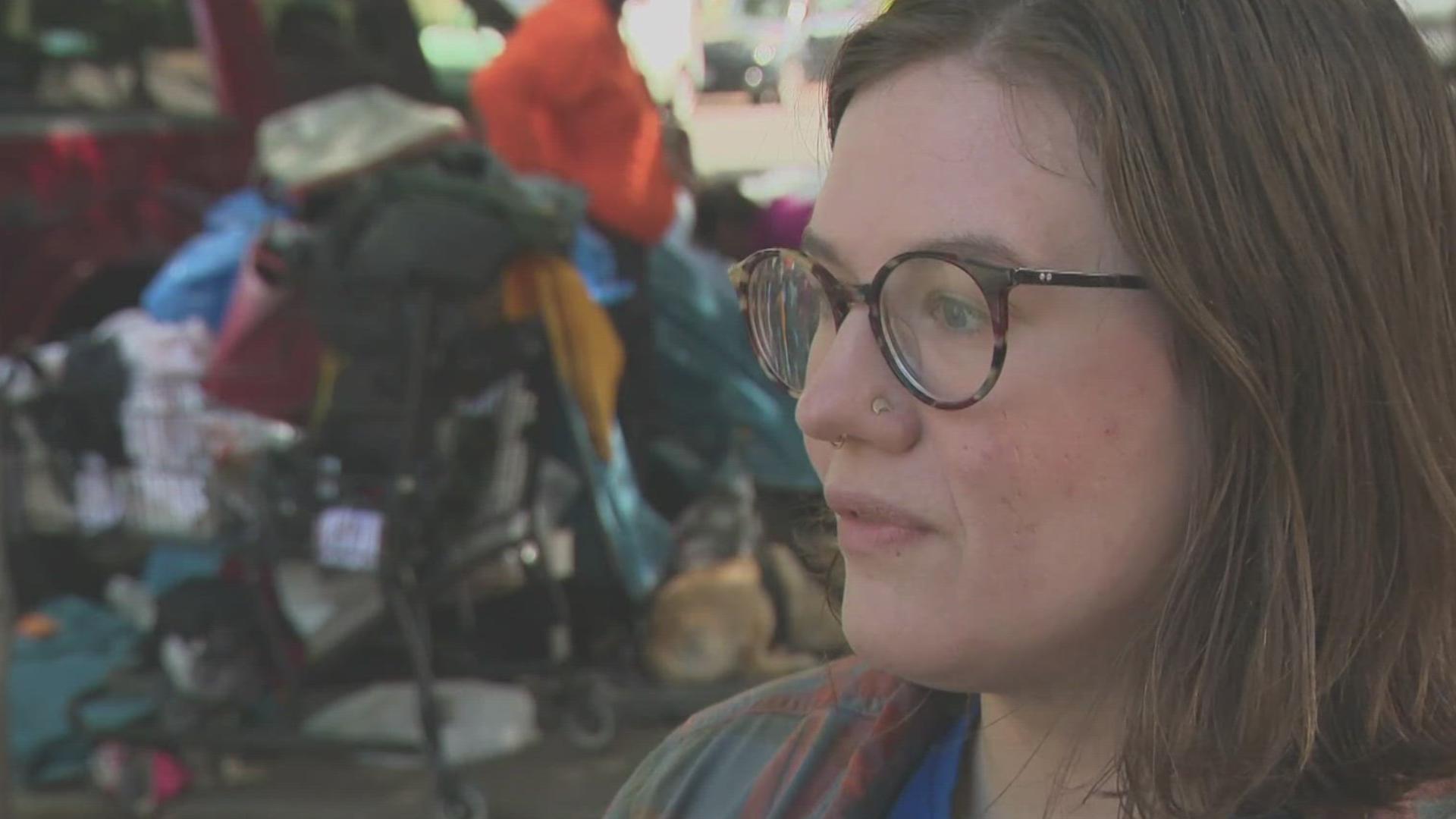PORTLAND, Ore. — Early Friday morning, the U.S. Supreme Court ruled that punishing people for sleeping outside when there is nowhere else for them to go does not violate Constitution, overturning a previous judicial precedent. Portland officials noted that the decision is unlikely to lead to any immediate changes on the city's streets, but local homeless advocates still condemned the ruling.
"We do see this as the first chip chipping away at the rights that we've worked so hard for… it's just furthering the criminalization of poverty," said Lauren Armony at Sisters of the Road. "It's a continuation of the war on the poor, and we are only going to see this get worse until we make changes to our socio-economic system."
In Portland’s Old Town neighborhood, which has become a hub for homeless service providers and those they help, advocates believe the Supreme Court ruling could eventually harm those living on the streets.
"We still have a lot of people in our community who are suffering… I think we need to work together to find humanitarian outcomes that serves everyone's interests," said Scott Kerman, executive director of Blanchet House.
Kerman spoke about of finding outcomes the help people like Charles, who is living out of a tent on the sidewalk with nowhere else to go.
"I’m a veteran and I didn't fight for that… I'd like to see Clarence Thomas out here for a little while to see what he feels about that," Charles said of the SCOTUS decision.
Under Oregon House Bill 3115, passed into law in 2021, cities are required to create their own rules around homeless camping, and they must be "reasonable" and take into account available shelter space — in essence, the law codified the judicial precedent, ensuring it would stay in place for Oregon even after the Supreme Court's ruling.
"The question for the legislature is do they then want to revise or get rid of HB 3115," said Portland mayor Ted Wheeler in an exclusive interview with KGW leading up to the SCOTUS decision.
Portland city commissioner and mayoral candidate Rene Gonzalez told KGW that if elected, he would push the state to be more in line with the Supreme Court ruling.
"It's a huge problem for the city of Portland. We really need Governor Kotek and the state legislature to fix their mistake here," he said.
However, it doesn't appear Gov. Tina Kotek will be doing that any time soon. Her office sent KGW the following statement on Friday:
“My office is reviewing today’s Supreme Court decision in the case of the City of Grants Pass v. Johnson, and the Court’s decision to take up this case shows that homelessness is a national issue.
“The intent behind House Bill 3115 (ORS 195.530) was to affirm that cities choosing to regulate survival activities, like sitting, lying, sleeping, or keeping warm and dry, must develop laws that are reasonable and take into account the resources available to individuals experiencing homelessness. I have supported cities to pass reasonable time, place and manner ordinances, and there are many communities across Oregon that have appropriately responded.
“Regardless of the Court’s decision, we must do all we can to address homelessness. This includes addressing the primary driver of homelessness – our lack of affordable housing. My focus will continue to be on supporting Oregonians moving into housing and connecting them with the services they need to prevent homelessness.”
Portland city commissioner and mayoral candidate Carmen Rubio, recently endorsed by Kotek, held a similar stance Friday. Her office sent KGW the following statement reading in part:
“This U.S. Supreme Court decision will have little or no impact on Portland because State law continues to control and limit what Oregon cities can and cannot do. The City is still required to follow State law that is on the books…We must continue to think big and keep stepping up housing production and increasing access to services for those with mental illness and substance abuse disorders. We can do both – be compassionate and hold the line when it comes to those very few cases of people who consciously refuse to abide by reasonable restrictions.”
The Supreme Court ruling comes just three days before the city of Portland is set to begin enforcing a new ban on homeless camping that follows state law, which means homeless people sleeping on the streets of Portland could face jail time if they refuse the offer for shelter — but only if there's shelter space available to be offered.

